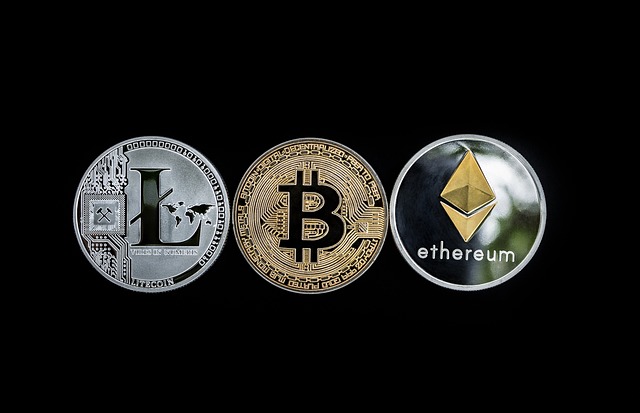Blockchain technology is revolutionizing identity verification by providing a secure, efficient, and decentralized alternative to traditional methods. Its key advantages include enhanced data integrity, reduced fraud, improved privacy, global reach, cost savings, and streamlined user experiences. By leveraging smart contracts and distributed ledgers, blockchain enables individuals to control their digital identities while ensuring data immutability and transparency. This technology is poised to disrupt sectors like finance, healthcare, and governance, attracting significant investment due to its potential for robust, reliable identity verification systems that align with growing digital transformation and data protection demands.
In an era of heightened security concerns, efficient identity verification (IDV) systems are paramount. Blockchain-based IDV emerges as a revolutionary solution with the potential to transform traditional methods. This article explores how blockchain technology can address the challenges and gaps in current IDV systems through enhanced security, data immutability, and decentralized storage. We delve into its benefits, key considerations for investors, and future trends, highlighting the growing market opportunity for blockchain tech investment in ID verification.
- Understanding Blockchain Tech and Its Potential for Identity Verification
- The Current State of Identity Verification Systems: Challenges and Gaps
- How Blockchain Can Revolutionize Identity Verification Processes
- Benefits of Implementing Blockchain-Based Identity Verification
- Key Considerations for Investors in Blockchain Identity Solutions
- Future Trends and the Growing Market for Blockchain Tech Investment in ID Verification
Understanding Blockchain Tech and Its Potential for Identity Verification

Blockchain technology is revolutionizing various sectors, and its potential for secure and efficient identity verification is immense. At its core, blockchain is a decentralized digital ledger that records transactions across multiple nodes, ensuring transparency and immutability. This distributed nature makes it highly resistant to fraud and manipulation, which are significant concerns in traditional identity verification systems. Each transaction or data entry on the blockchain is cryptographically secured, creating an immutable audit trail that can be verified by all participants.
The potential of blockchain tech investment in identity verification is transformative. By leveraging smart contracts, individuals can securely control their personal data, granting access only to authorized parties. This ensures privacy and reduces the risk of identity theft significantly. Additionally, blockchain’s global reach enables seamless cross-border identity verification, eliminating geographical barriers and streamlining processes for a more connected world. With its ability to enhance security, reduce costs, and improve user experiences, blockchain is poised to become the backbone of robust and reliable identity verification systems in various industries.
The Current State of Identity Verification Systems: Challenges and Gaps

The current identity verification landscape is characterized by a myriad of challenges and gaps that have long been exploited by fraudsters. Traditional systems, relying heavily on centralized databases and third-party service providers, are susceptible to data breaches and identity theft due to their single points of failure. The centralized nature also raises significant privacy concerns, as sensitive personal information is often shared and stored across multiple entities, increasing the risk of unauthorized access.
Furthermore, many existing verification methods are cumbersome and time-consuming for users, involving lengthy paperwork, multiple visits to physical locations, and repeated biometric data collection. This not only creates a poor user experience but also hampers rapid onboarding, particularly in high-growth sectors. The need for a more secure, efficient, and user-friendly identity verification system has become increasingly pressing, prompting many industries to turn to blockchain tech investment as a potential solution to bridge these gaps.
How Blockchain Can Revolutionize Identity Verification Processes

Blockchain technology has the potential to revolutionize identity verification processes, offering a secure and transparent alternative to traditional methods. By leveraging decentralized ledgers, blockchain enables individuals to control their digital identities, eliminating the need for intermediaries like banks or governments. This paradigm shift could lead to significant cost savings and increased efficiency in various sectors, from finance to healthcare.
With blockchain-based identity verification, data is stored across a network of computers rather than in a central repository, making it nearly impossible for hackers to manipulate or steal information. This enhanced security, coupled with immutable records, ensures the integrity and authenticity of personal data. Additionally, the distributed nature of blockchain allows for real-time verification, enabling faster and more accurate identity checks during online transactions or access requests. This is particularly beneficial in today’s digital era where tech investments in secure identity solutions are on the rise.
Benefits of Implementing Blockchain-Based Identity Verification

Implementing blockchain-based identity verification offers a multitude of benefits that traditional methods can’t match. Firstly, it enhances security through decentralized storage and cryptographic techniques, making data tampering nearly impossible. This ensures identity information remains intact and secure, protecting against fraud and identity theft. Additionally, blockchain technology enables efficient and seamless cross-border verifications, streamlining processes for both individuals and businesses.
The technology also promotes trust and transparency in transactions. Each transaction or update to an identity record is recorded on a public ledger, visible to all participants, which increases accountability and reduces the risk of manipulation. This fosters a more robust and reliable verification system, encouraging increased digital interactions with confidence. Moreover, blockchain-based solutions can significantly reduce costs associated with traditional identity verification processes by automating tasks and eliminating intermediaries.
Key Considerations for Investors in Blockchain Identity Solutions

When considering an investment in blockchain-based identity verification solutions, several key factors come into play for investors. First and foremost, understanding the underlying technology and its potential use cases is crucial. Blockchain tech investment requires a deep dive into how distributed ledger technology (DLT) can enhance security, privacy, and efficiency in identity management. Investors should assess the specific blockchain network being utilized, its consensus mechanism, scalability, and interoperability with existing systems.
Additionally, investors must evaluate the market demand and regulatory landscape. The global shift towards digital transformation and stringent data protection regulations make blockchain identity solutions increasingly attractive. However, varying legal frameworks across regions can impact implementation and adoption. Investors should also scrutinize the business model and competitive advantage of potential startups or companies offering these solutions, ensuring their sustainability and ability to navigate the dynamic market.
Future Trends and the Growing Market for Blockchain Tech Investment in ID Verification

The future of identity verification is looking increasingly decentralized, with blockchain tech investment at the forefront of this transformation. As more industries recognize the potential of blockchain to enhance security and privacy, the market for blockchain-based identity solutions is projected to skyrocket. This growing trend is driven by the promise of secure, tamper-proof records, reduced fraud, and streamlined user experiences. Businesses are increasingly adopting blockchain technology to meet stringent regulatory requirements and gain a competitive edge in an increasingly digital landscape.
The integration of blockchain into identity verification systems offers a new level of trust and transparency, addressing long-standing pain points in traditional identification processes. With its ability to facilitate secure data sharing and verify identities across multiple platforms, blockchain tech investment in ID verification is poised to disrupt various sectors, from finance and healthcare to governance and beyond. This emerging trend promises not only enhanced security but also a more efficient and user-centric approach to managing digital identities.
Blockchain technology is poised to revolutionize identity verification, addressing the current system’s challenges and gaps. Its decentralized nature, immutability, and enhanced security make it an ideal solution for creating secure, efficient, and user-friendly identity verification processes. As we look towards the future, the growing market for blockchain tech investment in ID verification suggests a promising landscape where blockchain-based systems will play a pivotal role in shaping safer and more streamlined digital interactions.
